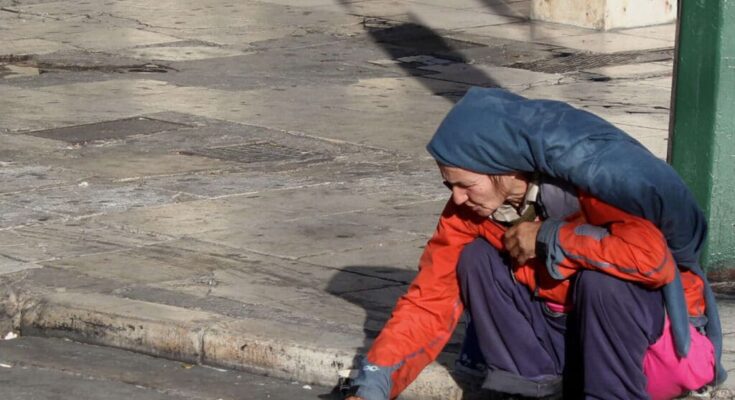
Greek people are now officially the second poorest in Europe. Real wages steadily fell through 2022, according to the latest OECD data, dropping 30% from pre-crisis levels.
Greece’s economic growth vs. declining purchasing power
The Greek government boasts about Greece’s economic growth, which is higher than the Eurozone average. However, Greek citizens remain at the “bottom of Europe” in terms of real purchasing power. Despite the ongoing economic recovery, Greeks are becoming poorer. The situation may worsen over time. Currently, Greece is often compared to Bulgaria in terms of purchasing power.
While the Greek economy’s upturn has slightly raised living standards compared to the EU average, this improvement is minimal. It has not lifted Greece from its position as the poorest country in the Eurozone.
Comparisons to pre-Crisis and Eurozone levels
It is worth noting that until 2009, Greece’s GDP per capita was close to the EU average. However, since then, 10 countries have surpassed Greece in living standards. Now, Greek people rank as the second poorest in Europe, only ahead of Bulgaria.
The gap between Greece and Bulgaria is shrinking rapidly. As a result, it is not unreasonable to expect Greece to soon become the poorest country in the EU. This prediction has sparked heated debate in Greek politics.
So, how can strong recovery and deepening poverty exist simultaneously? The aftermath of the financial crisis and the austerity that followed are to blame. Greece was forced to cut spending and raise taxes to secure an IMF and EU bailout. These measures strangled businesses and households, collapsing the economy. The economic damage Greece suffered was rare, even in peacetime.
As a result, the Greek economy is still about 19% smaller than it was in 2007. Meanwhile, the EU economy has grown by 17% during that time.
Poverty among young people
The poverty statistics in Greece are alarming. Other data confirms the difficult conditions for Greek citizens. In 2023, the Greek economy grew by 2%, but poverty did not decrease. According to ELSTAT, 26.1% of Greek men and women were at risk of poverty or social exclusion in 2023. This equals about 2,658,400 people. The poverty rate in 2022 was 26.3%.
It is important to note that Eurostat and ELSTAT define “poverty” as what we would call absolute poverty or destitution in everyday language. The poverty line is set at €6,030 per year for an individual or €12,663 for a household with two adults and two children under 14.
Especially concerning is the high percentage of young people aged 18-24 living in severe material and social deprivation. This rate is more than double the European average. In 2023, 14.8% of 18-24-year-olds faced severe deprivation. Women followed closely at 14.1%, with people over 55 at 13%. Men had slightly lower deprivation rates at 12.9%. Material and social deprivation is different from poverty. It measures access to essential goods and services rather than income. This includes food, housing, recreation, vacations, and emergency expenses.
Greece also holds negative records in child poverty. In 2023, nearly 22% of minors were at risk of poverty, compared to 18.3% of adults, according to a GSEE report.
INE-GSEE noted that while Greek society seemed to improve after the crisis’s low point, the poverty indicators have worsened again since 2020. For example, in 2022, 22.3% of households with dependent children in Greece lived below the poverty line, compared to 17.4% in the EU-27. In 2023, there was only a slight decrease, just 0.3 percentage points.



